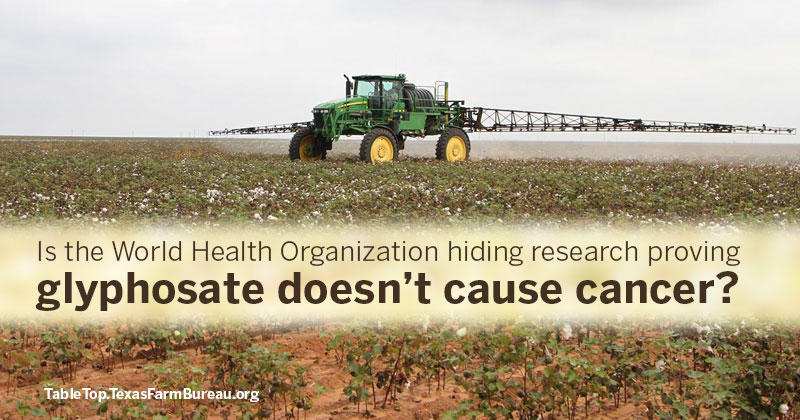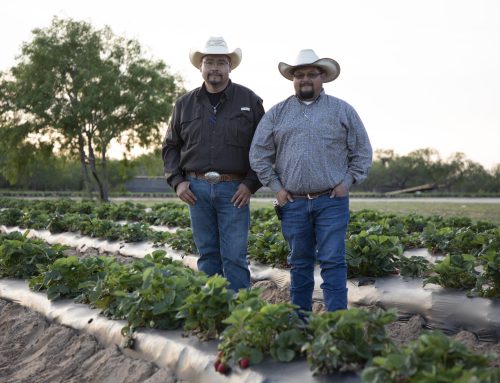By Jessica Domel
Fake news. We stumble across it on the Internet just about every day. When it comes to farming and ranching, there’s plenty of misinformation online. The same goes for glyphosate.
It’s one of the most widely-used and talked about herbicides. And it’s time to start unraveling the truth about it.
Farmers have been using the herbicide for decades, but in recent years, the product has been called into question.
Two years ago, the World Health Organization (WHO) announced its conclusion that glyphosate is a “probable carcinogen.” In other words, it could probably cause cancer.
Then, a few weeks ago, Reuters reported that a scientist involved in this study once worked on another glyphosate study—this one for the National Institutes of Health (NIH)—proving the weedkiller does not cause cancer.
Yet, it was never released.
The reason? The scientist reportedly told Reuters it was never released, because it was too much information for one report.
Sounds like an odd reason if you ask me.
That scientist then went on to serve on the same WHO committee for the International Agency for Research on Cancer (IARC), which released the report that glyphosate is a probable carcinogen two years ago.
Reuters then obtained copies of the initial IARC report and the one that was officially released. Their reporters go through both and note all the changes. See for yourself: http://reut.rs/2hyTbYY.
They find that someone along the way edited out research and inverted findings that allegedly showed glyphosate does not cause cancer.
Shocked? Disturbed? Confused? I was, too. And apparently several members of Congress were as well.
After the first Reuters report, the House Committee on Oversight and Government Reform sent a letter to the NIH asking why the information was withheld.
The NIH’s response has not yet been made public.
Texas Farm Bureau submitted a Freedom of Information Act request, but it has not yet been fulfilled.
Earlier this month, the House Science Committee sent a letter to the WHO asking for the contact information for people on the committee for a future hearing on the matter.
The IARC reportedly told POLITICO reporters in Europe they’ll respond when the request comes through the proper channels—the state department.
It’s understandable that some folks would have concerns about a product whose purpose is to kill weeds. This particular one, however, replaces a bunch of other chemicals. Those, too, are safe when used properly, but in terms of toxicity, glyphosate is pretty tame. Salt and caffeine are more toxic in equal amounts. It doesn’t take all that much to kill a weed. IARC is taking a great risk with its reputation by not answering these requests.











Leave A Comment